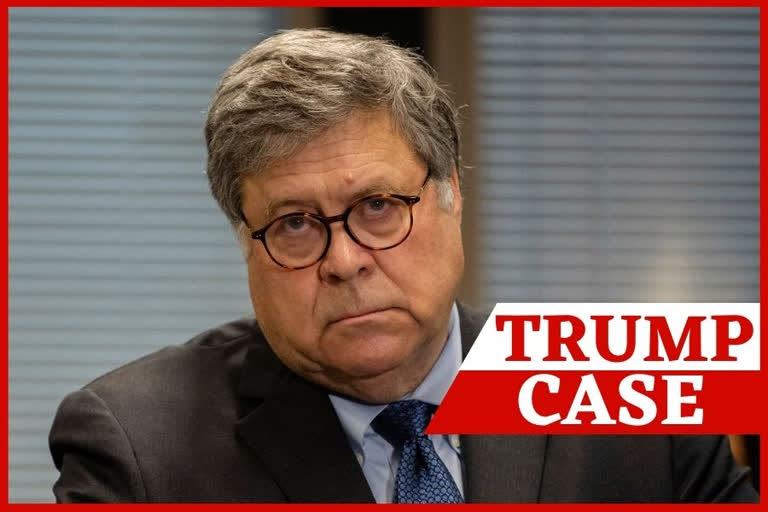Washington: Attorney General William Barr on Wednesday defended the Justice Department's move to intervene in a defamation lawsuit against President Donald Trump, even as experts were sceptical of the federal government's effort to protect the president in a seemingly private dispute.
"The Justice Department’s action is a normal application of the law. The law is clear. It is done frequently," Barr said at an unrelated news conference in Chicago.
He added, “The little tempest that is going on is large because of the bizarre political environment in which we live.”
But experts said it's far from clear that the conduct at issue whether Trump defamed E Jean Carroll, a writer who accused him of raping her at a New York luxury department store in the 1990s has anything to do with the scope of his White House duties. The department's move is likely to have an ancillary benefit for Trump in delaying the case, but administration lawyers have a tough task at hand trying to argue that the president was acting in his official capacity when he denied Carroll's allegations last year, experts say.
“I wouldn’t make such an argument, and if a president approached me to do it, I would say, ‘Don’t,’” said Stuart Gerson, who led the Justice Department’s Civil Division in President George H W Bush’s administration when Barr was attorney general for the first time.
“The president gets sued all the time and is defended by the government,” Gerson added, “but those are for lawsuits that have to do with actions in his official capacity as the president. This isn't anything like that.”
Read more:DOJ asks to defend Trump in rape accuser's defamation suit
The Justice Department's action is consistent with the expansive view of executive authority it has taken under Barr and with its practice of taking legal positions benefiting the president's interests, including asking the Supreme Court just last month to allow him to block critics from his Twitter account. It is likely to deepen concerns from critics that the department is functioning as a private law firm for the president, with the attorney general as his lawyer, which Barr has adamantly denied.
In the Carroll case, the stakes are especially significant since a move to transfer the lawsuit from state to federal court could not only delay it but also lead to its dismissal since federal courts have not historically permitted defamation claims against federal employees for actions taken in their official capacity.
On Wednesday, Barr described the intervention as 'somewhat routine' and said the normal process was followed in this case. He told in an interview broadcast Wednesday that he had been told the Justice Department's Civil Division was going to become involved and that he thought it was 'fine' but did not have to personally sign off on it.
He cited the Westfall Act, which enables the Justice Department to be substituted as a defendant when federal employees are sued in state court for actions within the scope of their official duties, and for the case to be transferred to federal court, where recovery of damages may be more difficult.
